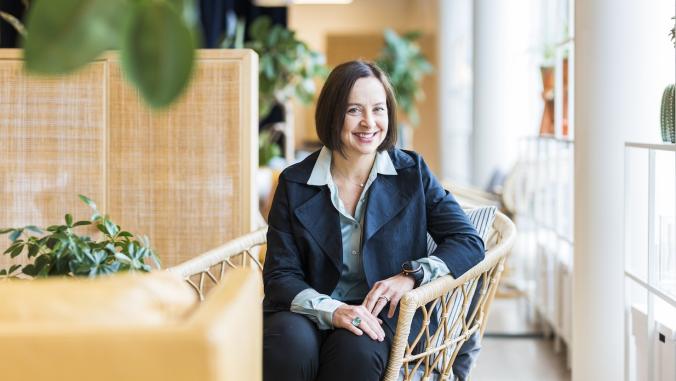Why low-carbon advocates large and small should speak up
Pick your positions wisely and try to keep politics out of it.

"When the whole world is silent, even one voice becomes powerful." Yes, Pakistani activist Malala Yousafzai was referencing education for girls when she uttered this sentiment. But it's a philosophy that corporate sustainability teams would do well to remember.
Even in a U.S. federal policy climate that seems hostile to prioritizing regulations intended to protect the environment or accelerate renewable energy and other low-carbon technologies, there's ample opportunity to shape policies at the local and state level, according to a panel of business advocacy experts speaking Wednesday at GreenBiz 18 in Scottsdale, Arizona.
"Some of you might wonder what the appropriations process in Washington, D.C., right now has to do with you or the infrastructure bill or even the farm bill," said Nicole Lederer, chair and co-founder of E2, a non-partisan, non-profit specializing in policy issues. "I would argue that they are all major opportunities to advance the clean economy and your positions within it."
That advocacy could take very different forms — from finding and encouraging funding for innovation to educating lawmakers about the implications.
The latter role should not be underappreciated, said Jon Powers, co-founder of solar financing organization CleanCapital, who sat on the legislative side of the table in a previous role with the White House Council on Environmental Quality.
"The policy makers don't actually know much about these issues," Powers said. "If you're a legislative director in a Congressman's office on Capital Hill, you may have energy, defense and health care in your portfolio. There's no way you can know all things … What's helpful is when the actual folks doing the actual work can come in and discuss how this policy might actually affect them in the real world."
His suggested homework assignment for sustainability directors: Take a trip to Washington or your state capital with your government affairs liaison. "You just have to show up and tell your story," he said.
For the nation's largest cleantech incubator, Greentown Labs, the focus is on helping one- to two-person startups in energy generation and storage, robotics, transportation and other technologies find the support to test their ideas and scale their potential innovations. The organization has represented about 130 companies over the past five years.
"In clean tech, there is often a gap. A gap between that very early-stage idea coming out of a university lab, and the take-up of that product or idea by a large corporation who is going to be able to take that innovation and scale it with their resources," said Emily Reichert, CEO of Greentown Labs. "That gap is often supported by a federal fund or policy that allows you to pay for that particular part of the development."
About 40 percent of the companies that have "graduated" Greentown Labs the past several years have leveraged funds through Small Business Innovation Research (SBIR) program, a seed fund offered by the U.S. Small Business Administration and supported by various federal agencies, such as the Department of Energy or Department of Agriculture. She describes this leg-up as "critical" although the amounts awarded are relatively small, ranging from $100,000 to $1 million.You just have to show up and tell your story.
For ridesharing and transportation company Lyft, the mission means remaining actively involved in discussions about future models for car ownership and staying abreast of both urban and rural public transit policies.
"It's pretty easy for Lyft to figure out the policies in our face that really govern the ridesharing industry," said Tommy Hayes, policy partnerships manager for the company. "We also try to think about what tangential policies and perhaps what environmental policies impact our ability to advance our mission."
One issue that is squarely in Lyft's radar: a bill that could recast the U.S. infrastructure landscape, as well as policies that will govern a "car light" or "car free" society.
That might include the construction of electric vehicle charging infrastructure. It's also focused on discussions around single occupancy cars, air pollution and traffic congestion and will "go to bat" for good public transit and funding. Case in point: In Seattle, Lyft backed a $50 billion bond measure to improve the light rail system in the area. It supported a similar initiative in the San Francisco Bay Area.
"We try to take a peek around the corner and say, 'What are the other things … how do we think about what an appropriate way for us to engage?" Hayes said. "Not to play politics, but to say, how does this policy ladder up to our core mission."





